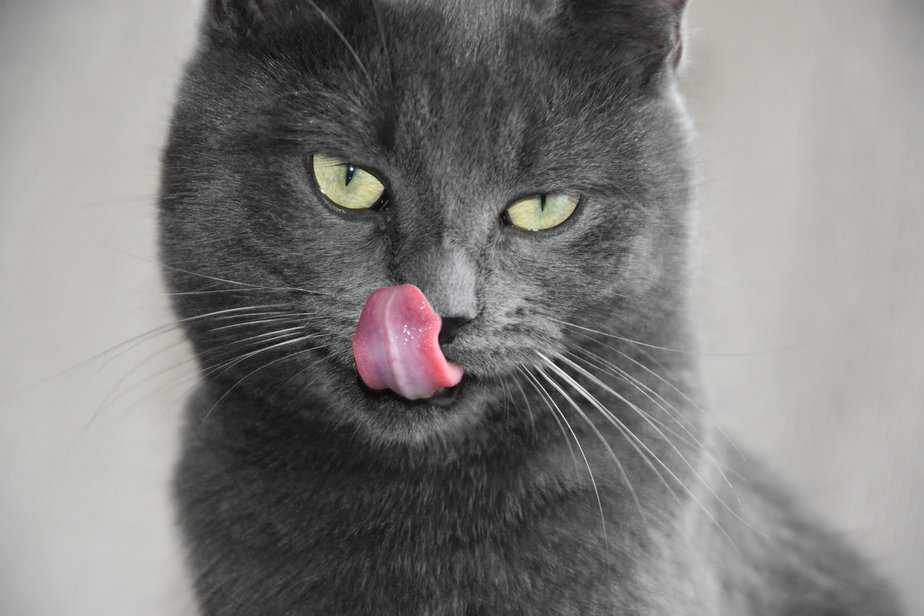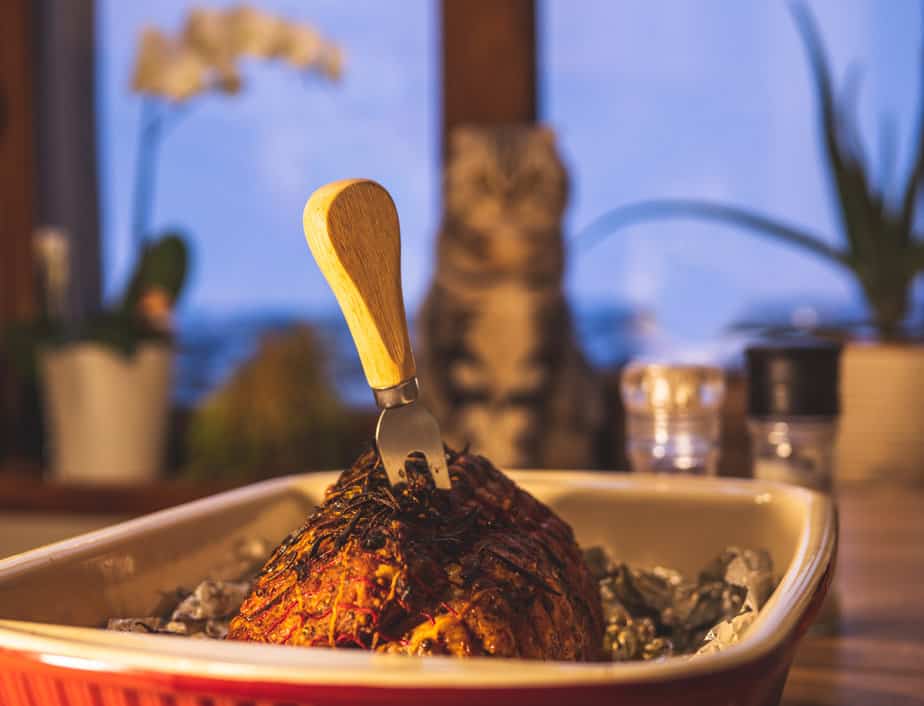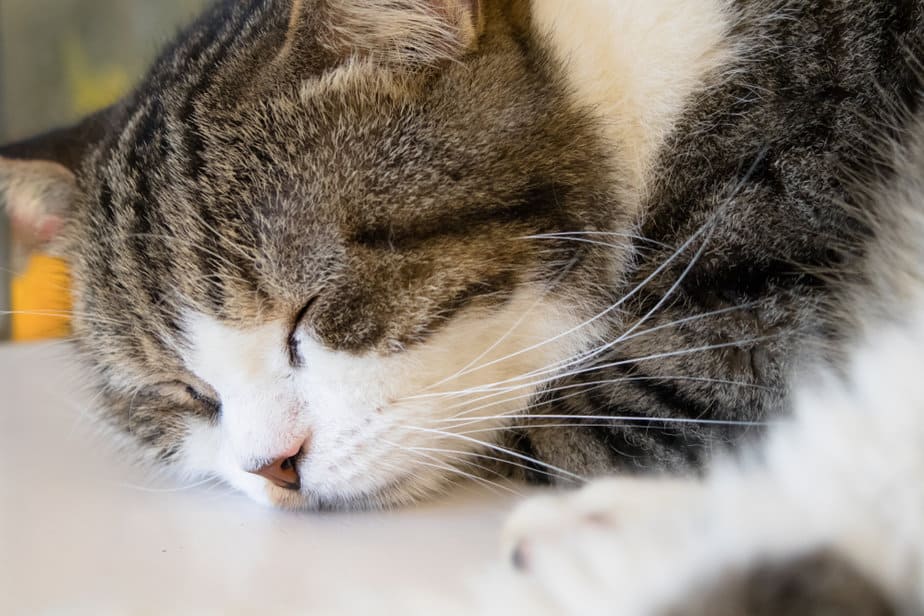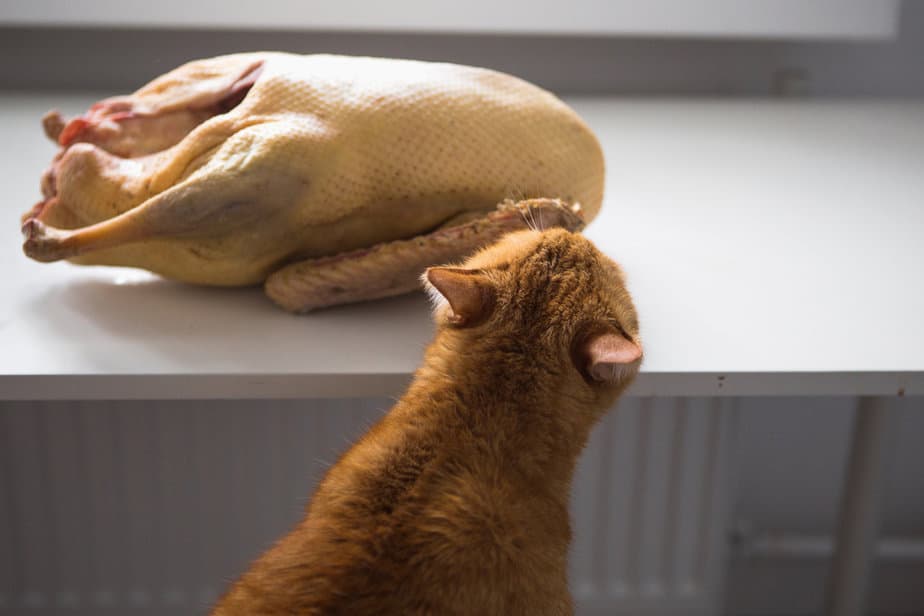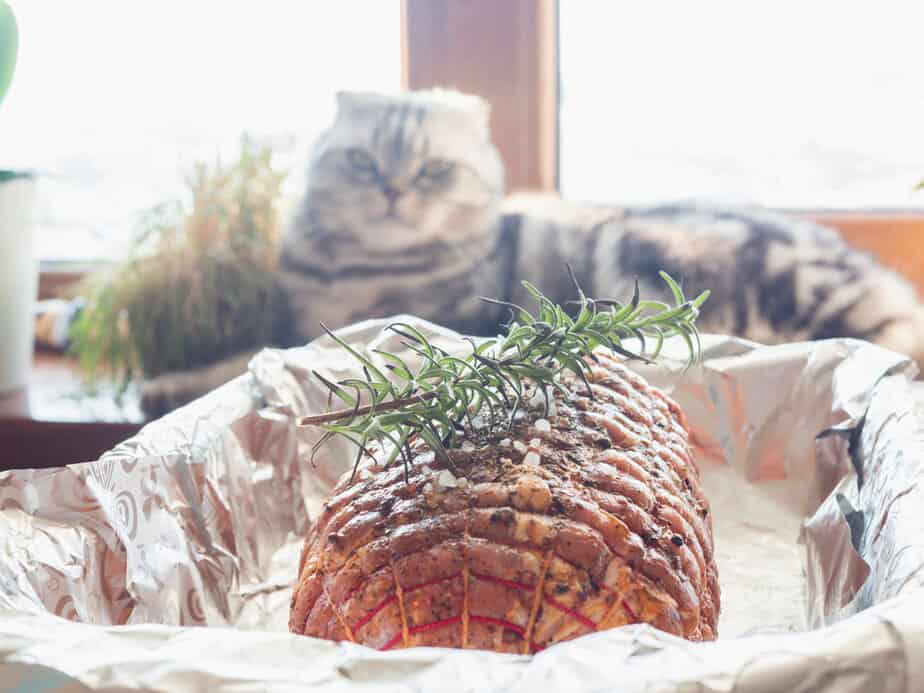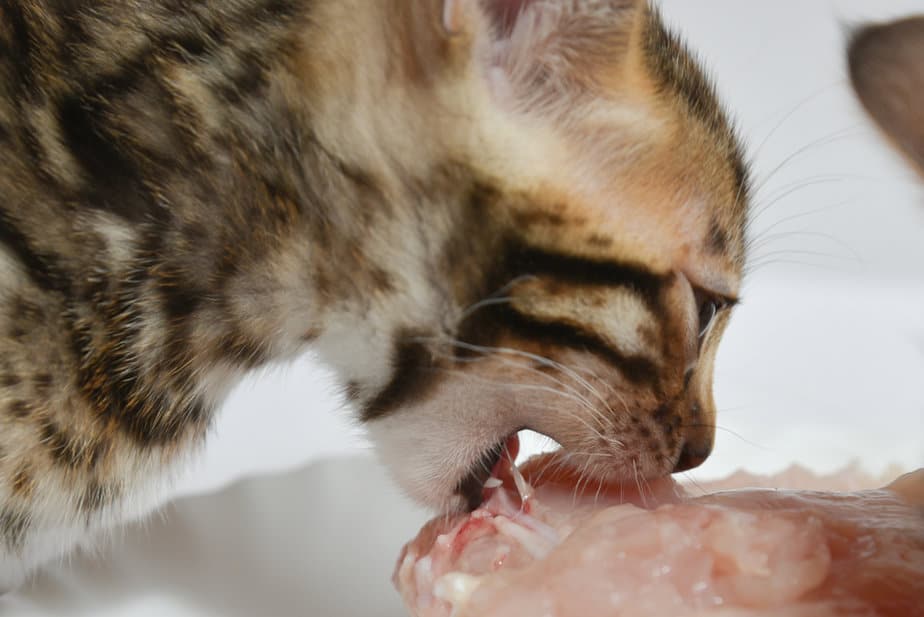📖 Table of Content:
- What’s the deal with cats and turkey?
- What’s so good about turkey?
- What’s so bad about turkey?
- Can cats eat raw turkey?
- What about deli turkey?
- Can cats eat cooked turkey?
- Can cats eat ground turkey?
- What about turkey ham?
- What about turkey breast slices?
- Can cats eat turkey liver?
- Can cats eat turkey bones?
- Can cast eat Thanksgiving turkey?
Oh, who doesn’t love getting together with their family, sipping on punch, and munching on Thanksgiving turkey!? Your curious creature (yes, we’re talking about the thing of fur on your lap) seems to think you’re celebrating Catsgiving and she’s trying to paw her way onto the table… But, can cats eat turkey?!
She’s been getting bored with her regular cat food (as if there’s anything wrong with it) for quite some time. Whenever she sees you preparing a turkey sandwich or a turkey breast bruschetta she gets giddy and greedy.
Honestly, the only thing stopping her from snatching that bite right out of your mouth has to be the look of utter despair you’re giving her. “Please, just this one time, let me have my sandwich in peace!”
But, she’s already tapping her little paws getting ready to nibble on something that might cause her harm. Don’t worry, there’s nothing wrong with making sure your furry friend’s getting the crème de la crème of foods.
And there’s nothing wrong with doing an occasional Google search to check whether she can eat turkey, chicken, or pretty much anything else she sets her little heart on. So, can cats eat turkey?
According to our friends over at the ASPCA (American Society for the Prevention of Cruelty to Animals), cats can eat turkey with pretty much no repercussions. Not only that, but turkey happens to be rich in protein, minerals, and vitamins that can benefit your furry friend.
But… There always seems to be a but somewhere in there when you’re trying to feed your cat something that shouldn’t be a regular part of a cat’s diet. Here’s everything you need to know about cats, turkeys, and making tempting turkey tidbits for your favorite furry friend.
What’s the deal with cats and turkey?
So, cats can eat turkey, right? Here’s the thing, certain human foods aren’t gentle on a cat’s tummy. That’s because they aren’t meant to be a regular part of their diet. Fruits, veggies, and grains might be great for you, but they’re pretty rough on your cat’s digestive system.
How’s that possible? Everything we know about fruits, veggies, and grains tells us that these tasty treats can’t have a negative impact on your furry friend. They’re packed with vitamins, minerals, antioxidants, amino acids, and fatty acids.
But, your cat’s digestive system happens to be a lot different from yours. Her digestive system doesn’t contain the enzymes that are necessary to break down and process most of the foods you eat on a regular basis.
You see, cats are obligate carnivores. They require a bunch of meat, animal protein, and animal-sourced nutrients in their diets in order to survive.
They’re wild animals in their nature. Their digestive systems are equipped with everything they need for the type of diet they require (which is pretty much Keto). That’s where the tempting turkey meat steps in and steals the show.
Your furry friend does get most of her nutrients from carefully crafted cat food and cat treats. But, there’s pretty much no harm in spicing things up with an occasional turkey tidbit. Turkey meat can benefit your cat’s health, but only when served moderately.
Maybe you’re looking for something else? Something a bit more detailed? Keep on reading to learn exactly what we mean when we say your cat can eat turkey but only in moderation.
What’s so good about turkey?
Your cat’s smile when you agree to let her have a taste? Her scrunched-up snout when she catches a whiff of roasted turkey meat coming from the kitchen? Her wide-opened eyes when she’s trying to decide between white meat and dark meat?
Yes, but there’s more! Turkey happens to be rich in protein, vitamins, minerals, antioxidants, amino acids, and fatty acids. What’s even more important, these nutrients are sourced from an animal (a turkey, duh). So, they’re even more beneficial to your furry friend.
Protein, one of (if not) the most important nutrients your cat needs, provides her with energy and maintains the health of her digestive system, nervous system, and respiratory system. When she doesn’t consume enough protein she’s at risk of experiencing health problems.
Weight loss, muscle loss, weakness, lethargy, incoordination, digestion problems, and respiratory problems are only some of them. But, an occasional turkey tidbit should be able to provide your cat with almost 30 grams of protein.
On the other hand, your cat also needs more amino acids than most humans do. Certain amino acids help her build blocks of muscles and fuel her body. Turkey contains a lot of those amino acids. And, the most important one happens to be taurine.
Taurine is ESSENTIAL for your cat’s health. Taurine helps with her vision, improves her digestion, maintains proper function of the heart, ensures normal pregnancy and fetal development, and establishes a healthy immune system. Quite a handy little thing, don’t you think?!
What’s so bad about turkey?
Cats can eat turkey, but… There are certain things you need to take into consideration before you run to the nearest Trader Joe’s to get a bunch of turkey legs for your slow cooker (and your fast eater).
First things first, raw turkey meat can be seen as a part of your cat’s natural diet. A wild cat would eat an entire turkey without batting an eye. But, a domesticated cat (we’re looking at you, Mrs. McFluffer) wouldn’t be able to do that without any repercussions.
Raw meat (especially when we’re talking about poultry) comes with a bunch of bacteria and parasites. These pesky passengers typically come in the shape of salmonella, e.coli, or trichinella. They can cause serious health issues for your cat.
We can’t overlook the fact that some cat owners believe raw meat belongs to a cat’s natural diet. But, it’s better to stay on the safe side.
On the other hand, turkey (while typically seen as lean meat) does contain a considerable amount of fat. There’s nothing wrong with a bit of fat here and there. But, it’s better to avoid feeding your cat turkey skin and other fatty turkey parts.
You should also avoid feeding your cat turkey that’s been fried in deep oil, turkey deli meat, and ground turkey. Trust me, too much fat can lead to serious gastrointestinal and digestive problems. Weight gain, obesity, diabetes, liver disease, kidney disease, and pancreatitis don’t sound all that fun, do they?
Last but not least, turkey bones are a big red flag. Raw turkey bones have the same problem with bacteria and parasites but they’re harder and sturdier than cooked ones. Cooked turkey bones are brittle, can easily break off, and cause a splinter to get stuck in your cat’s mouth or throat.
Can cats eat raw turkey?
Yes and no! As mentioned a couple of paragraphs ago, feeding raw meat to your cat has been up for debate for quite some time. Whether you’re the team for or the team against, there are a couple of things to take into consideration when making your final decision.
First things first, consult with your vet before feeding raw turkey (or any other raw meat) to your feline friend. Some felines have a sensitive digestive system. They might have a harder time digesting the bacteria, parasites, and other pesky passengers.
Secondly, when you notice signs of sickness such as weakness, loss of appetite, diarrhea that contains blood or mucus, excessive salivation, and thirst, contact your vet. Last but not least, don’t feed raw turkey (or any other raw meat) to your cat that’s dealing with other health problems.
What about deli turkey?
Deli turkey meat (or even lunch meat) shouldn’t be a regular part of your cat’s diet. This particular product, while popular among humans, does contain a bunch of fat, salt, and other seasonings which could harm your cat’s health.
What are we referring to when we say “deli meat?” It’s a processed meat product typically made from turkey breast that has been seasoned, cooked, and/or smoked. While deli meat isn’t the worst thing your cat can have in her mouth, it’s better to stick to other cat treats.
Apart from a bunch of fat, salt, and seasoning, deli meat also contain preservatives, additives, and artificial colorings. These things can harm your cat’s health when consumed over a longer period of time. Give her a tiny bite and learn how to say “no” before she tries to meow her way into another one!
Can cats eat cooked turkey?
Yes, cats can eat cooked turkey! Small pieces of plain, cooked turkey breast might be one of the best snacks your cat can have after she wakes up from her afternoon nap. It’s packed with protein, vitamins, minerals, and antioxidants.
Make sure you only feed her boneless, cooked turkey meat. Trust me, you don’t want her to choke on a rogue bone splinter. Other than that, feel free to surprise her with an occasional turkey tidbit.
Can cats eat ground turkey?
Yes and no! Cats can eat ground turkey, but that doesn’t mean that they should it ground turkey every single day. A bite or two shouldn’t cause them any harm. But, anything more than that could send them running to their litterbox.
Here’s the thing, ground meat contains a lot more fat than a regular chunk of meat. While fat isn’t harmful to cats when consumed in moderation, it becomes harmful when it’s consumed regularly over a longer period of time.
What about turkey ham?
No, turkey ham shouldn’t be a regular part of your cat’s diet. A bite or two shouldn’t be the reason for you to contact your vet. But, anything more than that might leave your cat with gnarly gastrointestinal problems.
Turkey ham contains a lot of fat, salt, seasonings, preservatives, nitrates, and other not-so-cat-friendly ingredients. Let’s just say, you’re better off keeping a healthy snack under your sleeve for those not-so-rare occasions when your cat demands to taste whatever you’re eating at the moment.
What about turkey breast slices?
Yes and no, again! Homemade turkey breast slices? ABSOLUTELY! Commercially available turkey breast slices? You might want to skip out on those. They contain a bunch of fat, salt, seasonings, and preservatives.
Sure, cats can eat turkey breast slices without experiencing adverse reactions. But, when you make them from scratch they can actually make for a healthy treat.
Can cats eat turkey liver?
Yes, as long as they don’t eat too much! Turkey liver contains a bunch of vitamin A (which is great). But, consuming too much liver can lead to vitamin A toxicosis when you’re not careful.
You might want to keep an eye out for signs of weakness, weight loss, hair loss, rough and dry skin, as well as muscle and bone soreness. She would need to consume A LOT of turkey liver and giblets to experience any of these symptoms. But, it’s better to be safe than sorry.
Can cats eat turkey bones?
Yes and no! As mentioned a couple of paragraphs ago, cats should generally avoid eating turkey bones as they can become a choking hazard.
Raw turkey bones are harder than cooked ones, but they contain bacteria and parasites that can cause serious harm to your cat’s health. On the other hand, cooked turkey bones don’t contain bacteria and parasites, but they’re brittle and they can get stuck in your cat’s throat.
Can cast eat Thanksgiving turkey?
No, cats can eat Thanksgiving turkey! Unless you’re planning on making a Thanksgiving turkey without any fat, salt, seasonings, stuffing, and gravy, you might want to let your furry friend sit this one out.
Unfortunately, Thanksgiving turkey contains too many harmful ingredients (onion, garlic?!) to be considered safe for your cat. You’re much better off feeding your cat with a turkey breast slice or even a piece of turkey liver.
